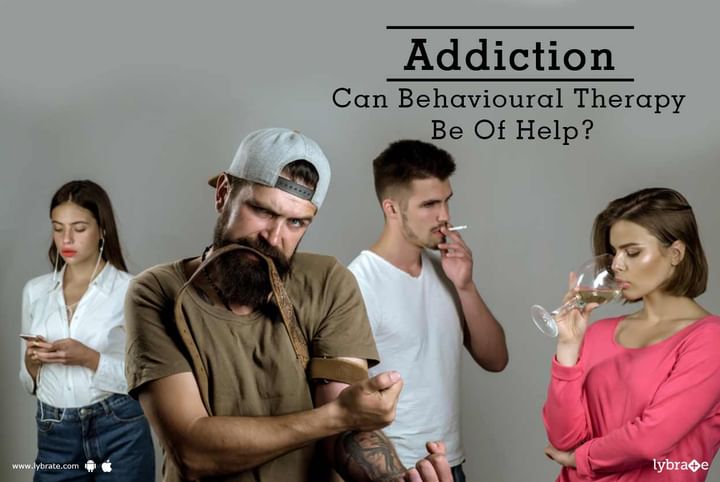Addiction - Can Behavioural Therapy Be Of Help?
Addiction refers to the condition where a person has an uncontrollable urge to use or take a substance, to an extent where it causes harm to the body in some manner. Addiction is characterized by the chronic dysfunction of one’s brain. Studies reveal that one in every three people in the world has some sort of an addiction.
Addictive behaviour and substances create a pleasurable ‘high’, which is psychological or physical. A person showing signs of addiction will likely use more of such substances or indulge in certain behaviours to achieve a similar pleasure. Over time, it becomes difficult to control these urges.
What are the causes of addiction?
Addiction is usually caused due to-
• Early exposure to addictive substances
• Environmental factors
• Genetics
• Dysfunctional brain system (Nucleus accumbens and Anterior cingulated cortex): these areas are associated with the pleasurable sensations of your brain and increase your response to addictive behaviours and substances.
Common addictions:
Addiction can be of any kind. Some people may be addictive to certain drugs, while others are addictive to certain foods or drinks, certain behaviours, or specific products. Some common addictions are-
• Nicotine
• Cocaine
• Narcotics
• Caffeine
• Alcohol
• Gadgets
• Sex
Signs of addiction:
A person with addiction issues will show the following signs:
• Lack of self-control
• Lack of emotional response
• Increased desire for a behaviour or substance
• Restlessness, if the desires are not fulfilled
• Inability or difficulty staying away from the trigger
Over the course of time, addictions can impede your daily activities. People with addiction are prone to cycles of remission and relapse. If left unattended, such a condition can pose a serious threat to one’s physical as well as emotional well-being.
Behavioural therapy for Addiction-
All sorts of addiction are curable. One of the many treatment options for addiction is the Cognitive Behavioral Therapy (CBT).
• CBT is a combination of two therapeutic approaches- Behavioral therapy and Cognitive therapy. This involves the addicted person communicating with the therapist. This promotes healing and allows the addicted person to learn about healthy behaviour.
• Since CBT is a problem-oriented approach, this helps an individual to look at the dysfunctional patterns within one’s current life. The therapy works to develop constructive coping strategies within a person, thereby enhancing self-control.
Things that give you pleasure today, can actually be precarious to your health in the future. Cognitive Behavioral Therapy is an effective method of dealing with addiction. Many support groups offer such therapeutic treatment for to people with addiction issues. Consult a therapist if you need help.



+1.svg)
